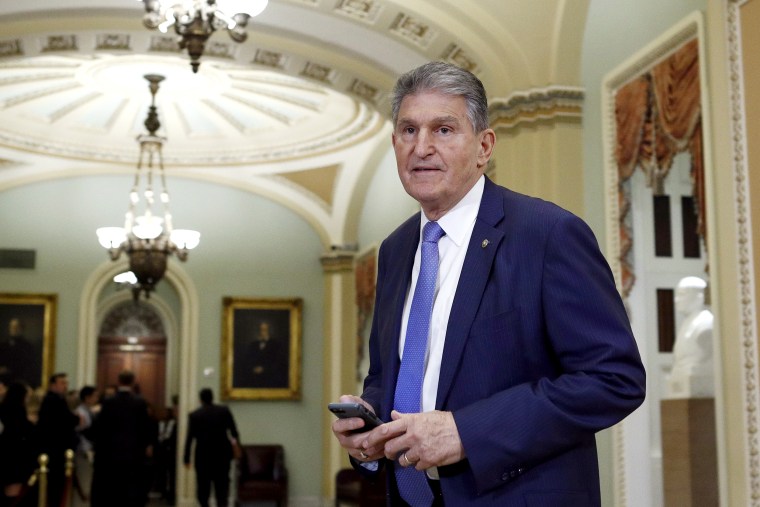With limited exceptions, the legislative process in Congress has been strangled in recent decades. The routinization of institutional abuses -- most notably, filibusters requiring 60-vote supermajorities on nearly every bill -- has dramatically curtailed policymakers' governing options and generated widespread calls for reforms.
Those calls invariably run into a seemingly impenetrable wall: Republicans, who rely on abuses to stop progressive governance, have no interest in changing the existing rules, and conservative Democrats have balked at reforms, fearing an end to illusory bipartisan comity.
Sen. Joe Manchin (D-W.Va.), in particular, has been quite vocal in support for the status quo -- which made it all the more notable yesterday when the West Virginia Democrat left the door ajar.
Sen. Joe Manchin, D-W.Va., a crucial swing-vote in the Senate Democrats' slim majority, said Sunday that he won't bend in his support for the filibuster, a Senate rule that forces most legislation to require bipartisan support to pass. But he added that he would be open to Democrats passing more important legislation like voting reforms by a party-line vote — if senators are given ample space for bipartisan negotiation first.
This gets a little complication, but stick with me for a minute.
During his "Meet the Press" appearance, Manchin reiterated his longstanding position on the Senate process, telling host Chuck Todd, "I'm not going to change my mind on the filibuster."
But that's not all he said. The conservative Democrat added that while he strongly believes in allowing the Senate minority to have "input" on the process, he's not necessarily opposed to possible changes. "If you want to make it a little bit more painful, make him stand there and talk, I'm willing to look at any way we can," Manchin said, apparently referring to the prospect of old-school, hold-the-floor-for-hours filibusters.
The senator made a related comment on Fox News yesterday morning, telling Chris Wallace that the filibuster "should be painful if you want to use it."
For reform advocates, the comments were both unexpected and welcome. After all, there's a fair amount of room between eliminating the filibuster altogether and leaving the status quo in place indefinitely, and if Manchin is open to some kind of changes, it means there may some reason for cautious optimism.
Indeed, putting aside the details of "talking filibusters" for another day -- it's a long story -- there's an underlying point of this that's worth emphasizing: when senators used to engage in old-school, hold-the-floor-for-hours filibusters, it was to delay, not derail, up-or-down, majority-rule votes.
Manchin's principal focus seemed to be on an inclusive and deliberate process, and there's nothing wrong with that. In fact, one of the great ironies of the larger debate is that the status quo doesn't encourage bipartisan debate and compromise; it discourages it.
It's within senators' power to improve upon this broken model. The more Manchin is open to the possibility of reform, the better.

